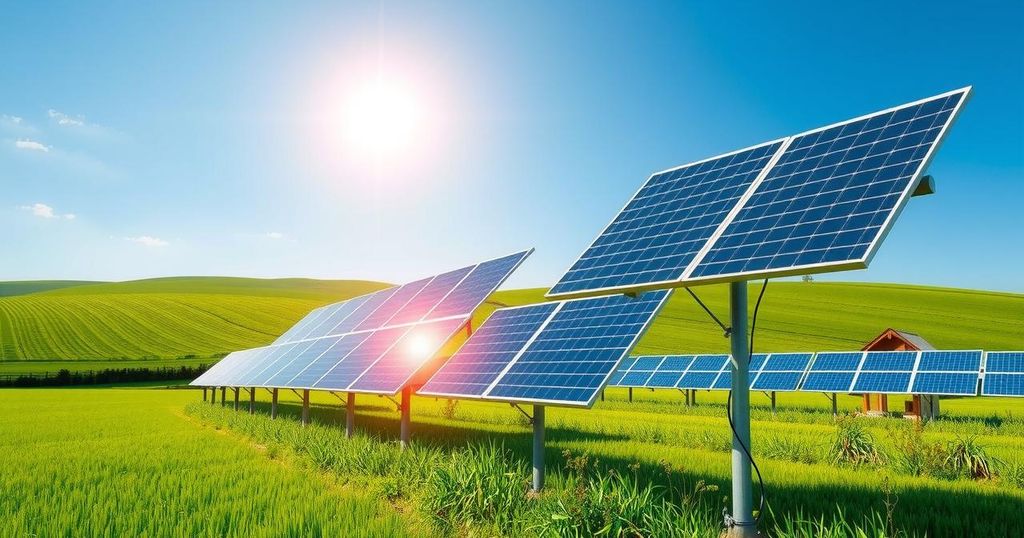Concerns Mount Over Proposed Solar Import Ban in Energy-Challenged Nigeria

The proposed ban on solar panel imports in Nigeria has raised concerns among business owners and energy experts, emphasizing the critical role of solar energy in the country. Critics argue that the ban could lead to significant price hikes, making solar power unaffordable and reversing progress made in renewable energy adoption. Government officials defend the strategy as a means to promote local manufacturing and energy self-sufficiency.
The Nigerian government’s proposal to ban solar panel imports has provoked concern among business owners relying on solar energy, such as Chidi Okonkwo, who compares it to “outlawing umbrellas during the heaviest rains.” With the national grid providing limited electricity, solar power is essential for small businesses, households, and healthcare facilities in the country.
The initiative is part of the Presidential Executive Order No. 5, emphasizing local content in technology sectors. Uche Nnaji, the Minister of Science and Technology, claims that Nigeria is investing in renewable energy infrastructure and can meet its solar needs domestically through local lithium processing for batteries.
Energy analysts caution that the ban’s implications may mirror past mistakes, such as the 2019 closure of land borders to curb smuggling, which led to rising food prices without resolution. Aisha Mohammed, an analyst, highlighted that the ban could further inflate solar panel prices, making them unaffordable for many Nigerians.
Jide Pratts, the country manager of Trade Grid, criticizes the hasty decision, arguing that Nigeria lacks sufficient local manufacturing capacity to meet demand and that local products tend to be more costly than imports. He insists on fostering competitive markets rather than imposing import restrictions without the ability to meet local demand.
Experts indicate that Nigeria’s solar manufacturing industry is still developing, with existing production not sufficiently scalable to satisfy extensive energy needs. Chioma Nwachukwu, a project manager, notes that local solar panels are often pricier than imported alternatives, thus limiting accessibility for average consumers.
The cost of imported solar systems in Nigeria ranges significantly—affordable entry-level systems start at N400,000, while comprehensive off-grid options can exceed N20 million. As seen with Juwon Adesanya’s investment of N4 million in a 5kVA system, higher-end solutions offer extensive backup power capabilities for multiple appliances at greater investment levels.
Experts, including Tunde Olawale, express that the proposed ban raises concerns of potential price hikes of 40-60 percent, making solar energy unaffordable for low-income families and leading them back to pollution-causing generators. In rural regions, where solar power often represents the only electricity source, the repercussions could be particularly severe.
For individuals like Adebola Ogunleye, a frozen food vendor, a rise in solar costs directly impacts their business expenditures and pricing, adding further burdens during challenging financial times for consumers.
The Nigerian government’s proposed ban on solar panel imports has raised significant alarm among business operators and energy experts alike. While the initiative is framed as a strategy to boost local manufacturing, the reality reveals a potential increase in costs that could drive many Nigerians back to traditional, less environmentally friendly energy sources. The lack of local manufacturing capacity and the existing economic pressures highlight the need for more supportive policies rather than restrictive measures in the burgeoning renewable energy sector.
Original Source: businessday.ng







